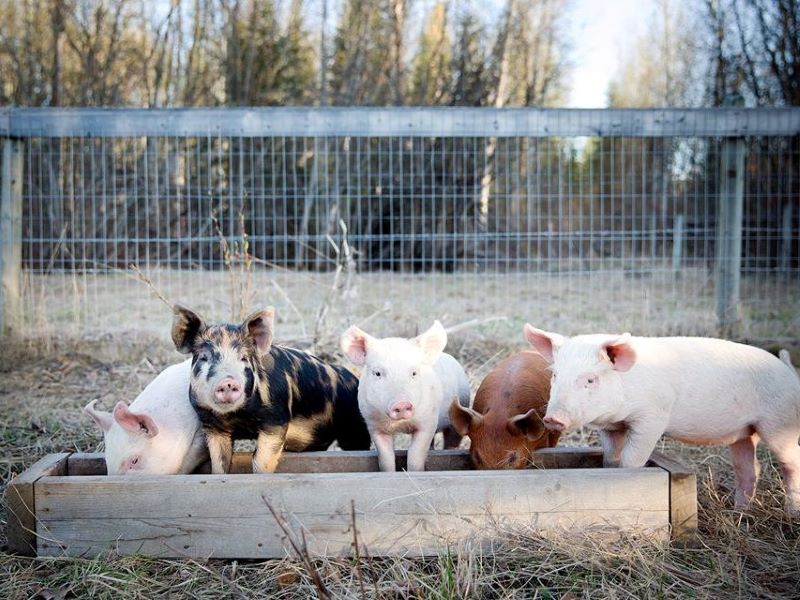
By Joan Ebsworth, guest writer for sense*, biologist and mother of sense* Founder, Jonathan on a reason for being vegan. One of the biggest impacts on the environment is meat production. Read about the adverse effects on the planet.
Starting Off: Unexpected reason for being vegan
The environmental impact wasn’t originally my reason for being vegan. Read about my other reasons for Becoming a vegan and why? I never thought during my coffee and red wine drinking days that I would write about being vegan and the environmental impact of not eating meat!
I viewed myself a “creaking door “at the age of 29. Being a full time teacher and having 3 children under 6, I was feeling the pace of life. I wanted to do something about it. So after reading a very detailed article in the magazine “Cosmopolitan” I decided to become a vegetarian.
Diet for a Small Planet: reason for being vegan
The magazine suggested reading a book which had recently been published called “Diet for a Small Planet” So I bought that book by Frances Moore Lappe and read it.
It shocked me! And millions of others by becoming a huge bestseller.
There was I wanting to change my diet for my health and suddenly I wanted to change my diet to save the planet. Frances Moore Lappe was one of the first people to claim that the environmental impact of meat production was wasteful. There was plenty of food in the world but that food policy was creating scarcity.
My realisation about not eating meat, how badly the environment is impacted.
I had never realised the impact of farming animals on our environment. The impact is huge.
In one year 15 billion animals will be raised and slaughtered for food across the world.
This causes land and water degradation, loss of biodiversity, pollution, faeces and urine build up, deforestation (remember the Amazon rainforest?) plus so called greenhouse gases.
It seems that even coral reef destruction can be put at the door of industrialised meat production.
Impact of Meat Production
18% of the greenhouse gases produced by humans across the globe comes from industrialised animal farming. This is more than the emissions from all the vehicles on the whole planet put together. Some argue that this is a reason for being vegan.
Add the two together and you realise that we have big environmental problems for the planet. These are both basic elements in greenhouse gas emissions and climate change. Causing floods, droughts, heatwaves, sea levels rising.
Animal farming contributes to them all and it is getting worse.
Imagine that you have a farm with 100,000 cows. Just dealing with the daily disposal of the faeces and urine is a massive task. Where does it go?
Those 100,000 cows are constantly taking in oxygen and breathing out carbon dioxide into the atmosphere as well as producing methane from the other end!
Greenhouse gas emissions
Carbon dioxide is the principal greenhouse gas. It is relatively high in temperature to begin with and the heat from the Sun increases its temperature. It does not break down for a very long time. Methane lasts less time but it is easier to heat up so is equally harmful.
The faeces and urine create ammonia and methane – all going into the atmosphere too. Both adding to the emission of greenhouse gases.
Remember that there are 15 billion animals to deal with – all doing the same thing. It is impossible to manage effectively without huge damage to the planet.
It is becoming more and more difficult to do so in reality.
Add to all this a fact that I had never realised. Just what a wasteful food meat actually is and how inefficient its production actually is.
How inefficient meat production is
1Kg of beef requires the animal to have eaten 25kg of grain plus the animal imbibing 15,000 litres of water.
The water is an issue too because in many parts of the world there isn’t a surplus of water. So it could be used more effectively to water the soil for growing plants.
Growing animals for meat is both inefficient and wasteful. Pork and chicken use slightly less volume of resources.
To start with cows are grazers and should be eating grass not grains. If these grains were available to people then more than 3.5 billion people could be fed across poorer countries where food is scarce.
Animal feed and GMOs
Many of the grains now fed to animals are genetically modified (GMO) and consequently contaminated with glyphosates – which then contaminate the meat.
GMO is used to make the crops more resistant so more toxic pesticides can be used. So the opposite to organic!
Animals and antibiotics
These animals are also automatically fed antibiotics and growth hormones – and of course those chemicals remain present in the meat or milk that the animal produces.
80% of all antibiotics produced on the planet are used on livestock farming.
Is it little wonder that we are creating bacteria that are resistant to antibiotics in humans? Little wonder that young girls develop pre-puberty.
The human gut microbiome must be suffering badly because of this invasion of antibiotics. A depleted gut microbiome affects your immune system and your brain function. As a biologist this is a reason for being vegan, or at least eating organically reared livestock.
It is not always your doctor’s antibiotic prescriptions that are causing the problems through increased resistance – but the antibiotics found in meat.
Mind you too many GP prescriptions for antibiotics are not good either. Keep them for when you really need them.
Huge Environmental Impact
So the list of environmental problems caused by the ever increasing farming of animals is one that we are going to have to address. Here are some of the ongoing problems that it causes:
- Deforestation
- Pollution of air and water
- Huge contribution to climate change
- Disposal of faeces and urine
- Huge Land usage
- Destruction of habitats and biodiversity
- Management of water supplies
- Toxic meats
Is it little wonder that these revelations at the time in 1971 truly decided me to give up meat as part of my daily diet? They are still if not more powerful reasons today.
Just giving it up for a couple of days a week could have a huge impact for the good of the planet – if we all did it. Or perhaps, give up buying low quality, mass produced meat if you cannot go the whole distance. Both your body and everyone else will thank you!
This is not a sense* article. The views expressed in this article are those of the author so there may be opinions or statements in this article that are not approved by sense* and do not represent the views and opinions of the company.

